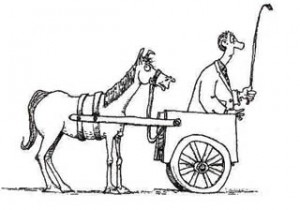There has beena good deal of tooth grinding about the current ASD budget gap, some of the ideological rants, some well intentioned efforts to focus the public eye on various issues. An example of the latter can be seen at ElectronicBonsai , David Block’s Blog. Tip o’ the hat to David in that he is generally accurate, but his conclusion unfortunately is not – there is no “simple” answer to ASD’s budget woes, in no small part because it is, at its base, a political problem and our politicians are doing a Tastes Great/Less Filling on us, and we continue to drink the slop.
Certainly bringing back the BRT system would increase community involvement in the budget on a more granular level. In fact, I served on BRTs during every cycle since they were implemented by Carol’s predecessor and we in fact help cut millions from ASD’s budget (mostly mission creep, as opposed to waste.) But any number cruncher will likely tell you that while the BRT system will give the community a better sense of what is in the budget, it is fairly obvious where cuts can be made, and we are likely not going to go there…..
On the other hand, David’s use of the term “infiltrated” with respect to federal education programs is unfortunate. As David Teal suggested (repeatedly, as it were, on LegTV) the State would have implemented the same programs as the Federal government offered financial incentives to pursue, so while an easy target for whiners, there is not much to complain of there. However, we should note that ASD has never fully complied with many policies that bring in Federal funds, but has always continued to receive those funds while they are afforded substantial room to move inside grant scoping parameters. But grants come with overhead and, as David correctly notes, run dry. One might even argue that Alaska School Districts should look at running their base functions off the base student allocation to avoid the boom and bust cycles that Ms. Comeau used to her advantage over the past decade to erode teacher compensation. But as most everyone will agree, that would be virtually impossible.
Books, though, could be cut with a bold turn into the headwinds of the 21st Century. But while we’ve wasted millions on technology that really won’t help, we have spent little on technology that could help. And while Mr. Steele, while a Board member, actually suggested that turning the Tech BRT into a standing District body might produce long term benefit, that idea was quickly snuffed when it became apparent that the BRT was not going to be led about quietly…. But even the savings that could be realized from appropriate technological policy won’t make a dent in the hole artificially created by our leading lights.
If one looks at budget expenses over time you see that adjusted for inflation what goes in to the classroom has not changed much over a decade, while overall spending has risen sharply. And most of that rise is attributable to low cost bonds pushed by the current and past administration for construction and administrative costs (which go far beyond just a few extra ineffective unit administrators.) In other words, the folk who are complaining most about the current cost of education are largely responsible for the cost sectors that they are whimpering about. And in the meantime, what most of Anchorage seems to forget is that most of us make no net payment for any State or local service. Let’s say that again: “most of Anchorage seems to forget is that most of us make no net payment for any State or local service.” The “taxes” that David references are offset by payments from the State to the populace, so from an accountancy perspective, we are being paid to pay our taxes and cry pitiably should anyone suggest that we actually reach into our pocket for a sous more.
We have made our bed and now it is time to lie in it. At the local level we have a fractured and polarized community, and we elect to the Board far right ideologues (who simply want to shut down public education and public employee unions) like Don Smith and centrist nodders who purport to be in support of public education and then give the nod to whatever looniness central administration runs up the flagpole (like Jeff Friedman who thought it was just fine that ASD should violate State law with respect to teacher credentials.) The current crop is so ineffective that none of them have apparently demanded that staff publish the working documents used to develop the scandalous e-mail that went out referencing a change from 6 to 7 periods, though the public asked the Board to make that information public 3 weeks ago. We have municipal administration that believes it can run roughshod over the community because it has an extra vote in the Assembly and we have a State government that is controlled by people who are approaching delusional.
In a very real sense, the source of our problems is the focus of our problems; we have so poorly managed public education that we have failed to produce what public education is intended to produced, an literate and informed public that can parse logic and rhetoric to engage in critical thinking for the purpose of making rational decisions. In fact many are trying now to gut our Constitution so that the State will fund “schools” that promote instruction in the supernatural while they applaud Mr. Ham and Creationism! Is that the fault of teachers? Well, far be it from me to argue that we don’t have more than a few rotten apples in the barrel, but that even the best teacher faces an impossible task with the odds we have stacked against them. But while Evaluation under The Danielson Group will require teachers to spend more time in peer review, reflection and lesson planning, they will be provided less time to do that, increasing class sizes (though class size should be halved), and reduced respect and compensation.
The rational response to all this might be to follow the age old advice to put the shovel down and back away from the hole, but that is not likely. What we are going to do is get very angry and scream our way into a few extra bucks, which in the long run will not in any way address the issues underlying our problems. The “simple” fact of the matter was well framed when Senator Dunleavy recently inquired of Superintendent Paramo regarding SJR9. Paramo ducked the question. And that is what our big school districts are all doing about State funding, they are all ducking. They use State politics to batter teacher negotiations. They throw up their hands and say, “It is out of our control!” instead of saying, “We are shutting this fiasco down because this entire discussion is ludicrous.” It is high time for local school districts to choose, because we all know that otherwise the choice is made for them, and that choice results in lots of people employed doing little more than babysit.



 Nor will her screed push those in the “middle” away from the Puritanism of Prevo et al, as would any rational adult attracted by such teenage angst? Would anyone pursuing a progressive agenda wish to really be associated with this tumultuous bellowing over whose musty magician does better magic? Is this even remotely appropriate?
Nor will her screed push those in the “middle” away from the Puritanism of Prevo et al, as would any rational adult attracted by such teenage angst? Would anyone pursuing a progressive agenda wish to really be associated with this tumultuous bellowing over whose musty magician does better magic? Is this even remotely appropriate? Look on those kids (even the one picking his nose.) Not one of those cute children understand what took place on 9/11/73. Not one sees the stark irony in howling about the injustice of one 9/11 while ignoring the other. Of my favorite authors, perhaps Vonnegut captures the irony of this season best. Like Vonnegut we seem to be masters of temporal distortion and disorientation, accomplished at auto-hypnosis and selective amnesia. As I sneak a peak in to the future, this is what I see for future Septembers, “9/11” grief celebrations that extol military virtue not unlike Russian Mayday celebrations.
Look on those kids (even the one picking his nose.) Not one of those cute children understand what took place on 9/11/73. Not one sees the stark irony in howling about the injustice of one 9/11 while ignoring the other. Of my favorite authors, perhaps Vonnegut captures the irony of this season best. Like Vonnegut we seem to be masters of temporal distortion and disorientation, accomplished at auto-hypnosis and selective amnesia. As I sneak a peak in to the future, this is what I see for future Septembers, “9/11” grief celebrations that extol military virtue not unlike Russian Mayday celebrations. The timing of the holidays this year poses much the same questions as the Holocaust did for our grandparents. Are there any innocents, and can you forgive without being forgiving; can you expect atonement from others without owning your own misconduct? What responsibility, if any, does the victim have in his own demise? In a perfect world perhaps the taunt, “You asked for it,” would lose all meaning, but in the world in which I live, a world peopled by those with long memories, simmering resentment and deep anger, owning up to one’s responsibility seems unappetizing to people who wear the red, white and blue.
The timing of the holidays this year poses much the same questions as the Holocaust did for our grandparents. Are there any innocents, and can you forgive without being forgiving; can you expect atonement from others without owning your own misconduct? What responsibility, if any, does the victim have in his own demise? In a perfect world perhaps the taunt, “You asked for it,” would lose all meaning, but in the world in which I live, a world peopled by those with long memories, simmering resentment and deep anger, owning up to one’s responsibility seems unappetizing to people who wear the red, white and blue.

 A year or so ago UAA Nursing Students decided to put the question of whether the recommended daily allowance (RDA) of Vitamin D would produce adequate blood levels to the test and found that the RDA came nowhere close to ensuring adequate Vitamin D. Alaskan doctors are now suggesting 4000 IU daily (combined with Magnesium and Calcium) while many foolish Alaskans complain or suffer from the conditions
A year or so ago UAA Nursing Students decided to put the question of whether the recommended daily allowance (RDA) of Vitamin D would produce adequate blood levels to the test and found that the RDA came nowhere close to ensuring adequate Vitamin D. Alaskan doctors are now suggesting 4000 IU daily (combined with Magnesium and Calcium) while many foolish Alaskans complain or suffer from the conditions 